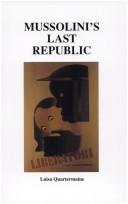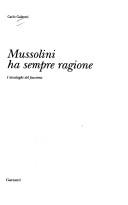| Listing 1 - 10 of 12 | << page >> |
Sort by
|
Book
ISBN: 9782336495880 9782336495880 2336495880 2336495880 Year: 2024 Publisher: Paris: l'Harmattan,
Abstract | Keywords | Export | Availability | Bookmark
 Loading...
Loading...Choose an application
- Reference Manager
- EndNote
- RefWorks (Direct export to RefWorks)
Allié dans l'axe Berlin-Rome-Tokyo, l'Empire japonais mène une guerre brutale en Asie (1931-1945). Les experts du Japon restent partagés : comment caractériser ce régime ? Est-il autoritaire, fasciste ou totalitaire ? Les attitudes, idées et actes d'un peuple se construisent par les discours (langage, rhétorique, images) qui l'entourent. C'est en étudiant le langage qui imprègne le Japon en guerre que ce livre propose une nouvelle entrée pour répondre à ces questions importantes.Les lettres et journaux intimes de soldats japonais analysés ici nous mettent sur la piste de discours fascistes et totalitaires. L'appel au sacrifice généralisé retentit à tous les niveaux langagiers

ISBN: 9781902454085 1902454081 Year: 2000 Publisher: Exeter : Elm Bank Publications,
Abstract | Keywords | Export | Availability | Bookmark
 Loading...
Loading...Choose an application
- Reference Manager
- EndNote
- RefWorks (Direct export to RefWorks)
Propaganda, Italian --- Fascist propaganda --- Propagande italienne --- Propagande fasciste --- Sources --- Italy (Fascist Republic : 1943-1945).
Book

ISBN: 9780817321185 9780817393946 0817393943 Year: 2022 Publisher: : University of Alabama Press,
Abstract | Keywords | Export | Availability | Bookmark
 Loading...
Loading...Choose an application
- Reference Manager
- EndNote
- RefWorks (Direct export to RefWorks)
"Few developments in contemporary politics are more striking than the frequency with which the term "fascist" is used to describe specific actors and groups. This marks a qualitative shift in our political discourse. For decades, "fascist" was an epithet used to brand one's political opponents, regardless of political ideology or governing philosophy, but most often to attack a specific individual. With the rise of extremist parties and candidates in Europe, the U.S., and around the globe, however, even mainstream political commentators have begun using the term "fascism" to describe what they see as a dangerous movement that has revived and repackaged many of the strategies long thought to have been relegated to the margins of political rhetoric. This book defines and interprets the common persuasive devices that characterize fascist discourse to understand the nature of its enduring appeal, and which has resurfaced as one of the most pressing problems of our time. A definition of fascism that guides the contributors here draws from the work of Kenneth Burke: the sustained and systematic deployment of rhetorical devices aimed at promoting the cult of irrationality by identifying both the victimhood and the inborn dignity of a newly crystalized social group, sanctioned by tradition, whose rebirth requires the spiritualization of injustice and internal and external purification through redemptive violence. This definition has much in common with established understandings of fascism, but a rhetorical approach emphasizes less how fascism manifests itself in parties, platforms, regimes, movements, and organizations, but rather on the tendencies in language itself that make these manifestations possible. Introductory chapters focus on general theories of fascism drawn from 20th-century history and theory. The remaining chapters investigate specific historical figures and their relationship to contemporary rhetorics. As indicated by their titles, each chapter focuses on defining a specific rhetorical device that seems characteristic of fascist rhetoric. This book does not promise a comprehensive inquiry into all aspects of fascism. The topics were selected by the authors based on their own expertise and because they illuminate a specific rhetorical device. A reader, by the end, should have acquired many of the conceptual critical resources by which to identify familiar fascist strategies of persuasion and propaganda"--
Political systems --- Pragmatics --- Fascism --- Fascist propaganda. --- Rhetoric --- Fascisme --- Discours politique. --- Propagande fasciste. --- Philosophy. --- Political aspects. --- Philosophie.
Book
ISBN: 0817393943 9780817393946 9780817321185 0817321187 Year: 2022 Publisher: Tuscaloosa
Abstract | Keywords | Export | Availability | Bookmark
 Loading...
Loading...Choose an application
- Reference Manager
- EndNote
- RefWorks (Direct export to RefWorks)
"Few developments in contemporary politics are more striking than the frequency with which the term "fascist" is used to describe specific actors and groups. This marks a qualitative shift in our political discourse. For decades, "fascist" was an epithet used to brand one's political opponents, regardless of political ideology or governing philosophy, but most often to attack a specific individual. With the rise of extremist parties and candidates in Europe, the U.S., and around the globe, however, even mainstream political commentators have begun using the term "fascism" to describe what they see as a dangerous movement that has revived and repackaged many of the strategies long thought to have been relegated to the margins of political rhetoric. This book defines and interprets the common persuasive devices that characterize fascist discourse to understand the nature of its enduring appeal, and which has resurfaced as one of the most pressing problems of our time. A definition of fascism that guides the contributors here draws from the work of Kenneth Burke: the sustained and systematic deployment of rhetorical devices aimed at promoting the cult of irrationality by identifying both the victimhood and the inborn dignity of a newly crystalized social group, sanctioned by tradition, whose rebirth requires the spiritualization of injustice and internal and external purification through redemptive violence. This definition has much in common with established understandings of fascism, but a rhetorical approach emphasizes less how fascism manifests itself in parties, platforms, regimes, movements, and organizations, but rather on the tendencies in language itself that make these manifestations possible. Introductory chapters focus on general theories of fascism drawn from 20th-century history and theory. The remaining chapters investigate specific historical figures and their relationship to contemporary rhetorics. As indicated by their titles, each chapter focuses on defining a specific rhetorical device that seems characteristic of fascist rhetoric. This book does not promise a comprehensive inquiry into all aspects of fascism. The topics were selected by the authors based on their own expertise and because they illuminate a specific rhetorical device. A reader, by the end, should have acquired many of the conceptual critical resources by which to identify familiar fascist strategies of persuasion and propaganda"--
Fascism --- Fascist propaganda. --- Rhetoric --- Fascisme --- Discours politique. --- Propagande fasciste. --- Philosophy. --- Political aspects. --- Philosophie.
Book
ISBN: 9791254694022 Year: 2023 Publisher: Roma : Viella,
Abstract | Keywords | Export | Availability | Bookmark
 Loading...
Loading...Choose an application
- Reference Manager
- EndNote
- RefWorks (Direct export to RefWorks)
Nationalisme et archéologie --- Propagande fasciste --- Fascisme --- Et Rome. --- Italie --- Politique culturelle.
Book
ISBN: 8883821122 9788883821127 Year: 2004 Publisher: Torino : Testo & immagine,
Abstract | Keywords | Export | Availability | Bookmark
 Loading...
Loading...Choose an application
- Reference Manager
- EndNote
- RefWorks (Direct export to RefWorks)
Films d'architecture --- Architecture publique --- Propagande fasciste --- Fascisme et architecture --- Propagande italienne --- Films d'actualité --- Politique culturelle --- Bâtiments publics --- Istituto Luce
Book
ISBN: 8496136310 Year: 2003 Volume: 82 Publisher: Barcelona Acantilado
Abstract | Keywords | Export | Availability | Bookmark
 Loading...
Loading...Choose an application
- Reference Manager
- EndNote
- RefWorks (Direct export to RefWorks)
Political philosophy. Social philosophy --- History of Germany and Austria --- Semiotics --- History of civilization --- anno 1930-1939 --- anno 1940-1949 --- anno 1910-1919 --- anno 1920-1929 --- National socialism --- Signs and symbols --- Fascist propaganda --- Nazisme --- Signes et symboles --- Propagande fasciste --- History --- Histoire

ISBN: 8811738776 9788811738770 Year: 2000 Publisher: Milano : Garzanti,
Abstract | Keywords | Export | Availability | Bookmark
 Loading...
Loading...Choose an application
- Reference Manager
- EndNote
- RefWorks (Direct export to RefWorks)
On the decalogues of Fascist propaganda under Mussolini commented by the author in their historic context.
Faschismus. --- Fascism and culture --- Fascism and culture. --- Fascism --- Fascism. --- Fascisme --- Fascist propaganda --- Fascist propaganda. --- Ideologie. --- Idées politiques --- Politics and government. --- Propagande fasciste --- History --- Mussolini, Benito, --- 1900-1999. --- Italie --- Italien. --- Italy --- Italy. --- Politique et gouvernement --- Politics and government
Book
ISBN: 9780415899192 0415899192 9780203071847 0203071840 1299280455 1135097259 9781135097257 9781135097202 9781135097240 9781138922792 1135097240 113892279X Year: 2013 Publisher: New York (N.Y.) Routledge
Abstract | Keywords | Export | Availability | Bookmark
 Loading...
Loading...Choose an application
- Reference Manager
- EndNote
- RefWorks (Direct export to RefWorks)
This book focuses primarily on continuities and discontinuities of fascist politics as manifested in discourses of post-war European countries. Many traumatic pasts in Europe are linked to the experience of fascist and national-socialist regimes in the 20th century and to related colonial and imperialist expansionist politics. And yet we are again confronted with the emergence, rise and success of extreme right wing political movements, across Europe and beyond, which frequently draw on fascist and national-socialist ideologies, themes, idioms, arguments and lexical items. Post-war taboos h
Discourse analysis --- Fascist propaganda --- Fascism and literature --- National socialism and literature --- Analyse du discours --- Propagande fasciste --- Fascisme et littérature --- Nazisme et littérature --- Political aspects --- Aspect politique --- Fascism and literature. --- Fascist propaganda. --- National socialism and literature. --- #KVHA:Politieke taal --- #KVHA:Fascistische taal --- Political aspects. --- Europe. --- #KVHA:Discourse analysis --- #KVHA:Taalkunde --- Literature and national socialism --- Literature --- Propaganda, Fascist --- Fascism --- Propaganda, Italian --- Literature and fascism --- Discourse grammar --- Text grammar --- Semantics --- Semiotics
Book
ISBN: 9788846487667 8846487664 Year: 2007 Volume: 37 Publisher: Milano, Italy : FrancoAngeli,
Abstract | Keywords | Export | Availability | Bookmark
 Loading...
Loading...Choose an application
- Reference Manager
- EndNote
- RefWorks (Direct export to RefWorks)
Storia delle imposizioni alla stampa non in tutto l'arco del regime fascista, ma nella fase cruciale che va dalla prima caduta di Mussolini alla Liberazione, ossia dal 25 luglio 1943 al 25 aprile 1945.
Government and the press --- Press and propaganda --- Fascism --- Fascist propaganda --- Etat et presse --- Presse et propagande --- Fascisme --- Propagande fasciste --- History --- History. --- Sources. --- Sources --- Histoire --- 070.13 --- 351.751 <45> --- 945.094 --- 945.094 Geschiedenis van Italië: fascisme; Mussolini--(1922-1944) --- Geschiedenis van Italië: fascisme; Mussolini--(1922-1944) --- 351.751 <45> Mediarecht. Vrijwaren van de vrijheid van denken, van de persvrijheid. Censuur. Filmcensuur. Reclamerecht--(Fundamentele vrijheden in de grondwet zie {342.732})--Italië --- Mediarecht. Vrijwaren van de vrijheid van denken, van de persvrijheid. Censuur. Filmcensuur. Reclamerecht--(Fundamentele vrijheden in de grondwet zie {342.732})--Italië --- 070.13 Persvrijheid. Perscensuur. Wettelijk kader van de pers--z.o.{351.751} --- Persvrijheid. Perscensuur. Wettelijk kader van de pers--z.o.{351.751} --- Propaganda and press --- Propaganda --- Journalism --- Press --- Press and government --- Press policy --- State and the press --- Freedom of the press --- Press and politics --- Propaganda, Fascist --- Propaganda, Italian --- Objectivity --- Government policy
| Listing 1 - 10 of 12 | << page >> |
Sort by
|

 Search
Search Feedback
Feedback About UniCat
About UniCat  Help
Help News
News